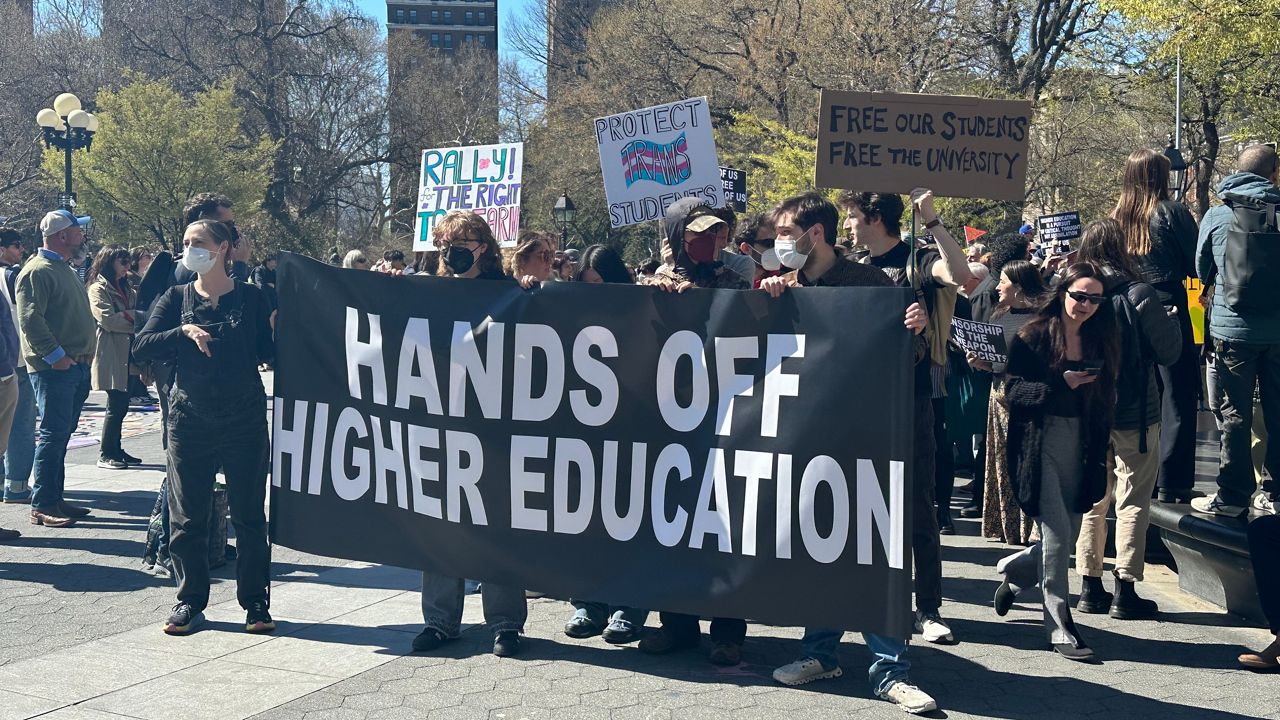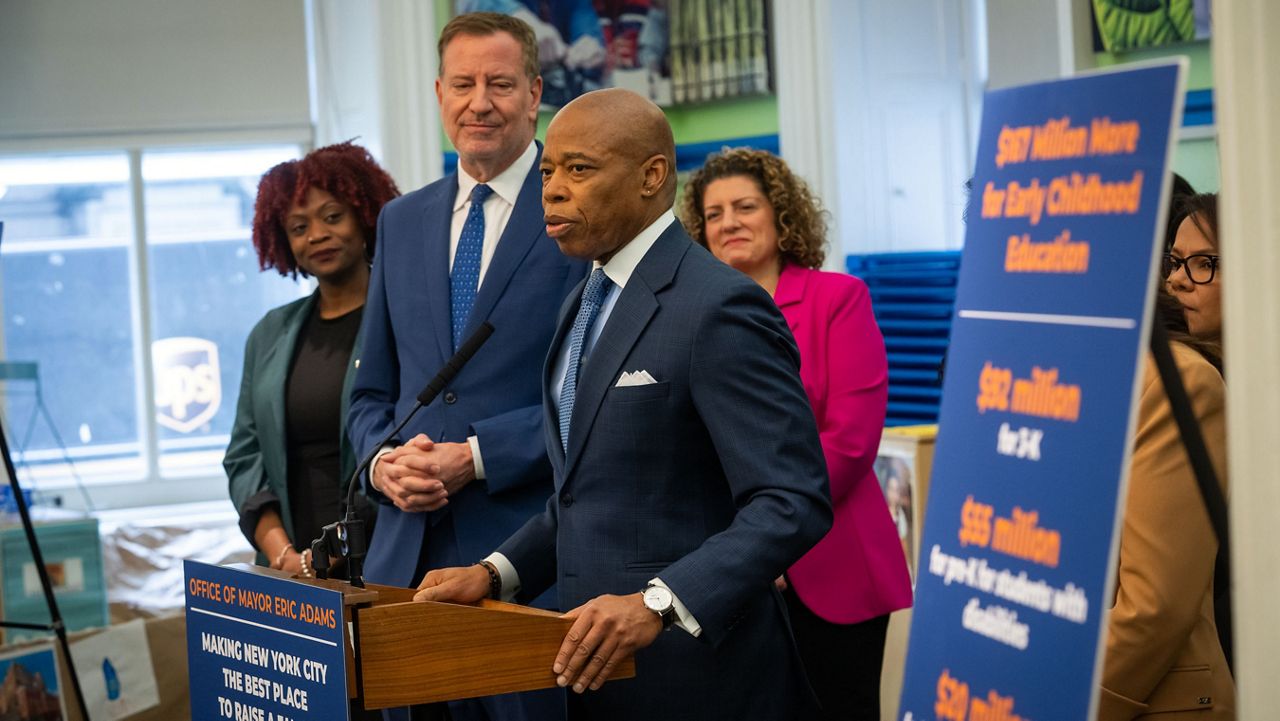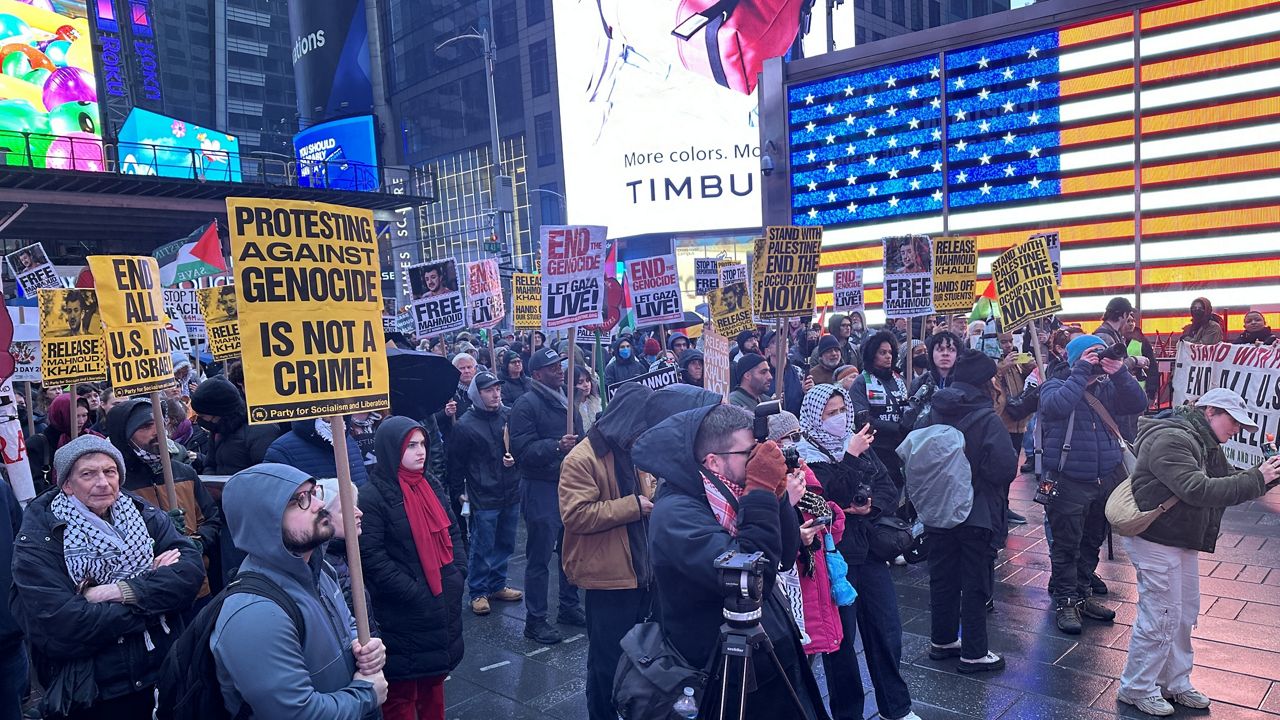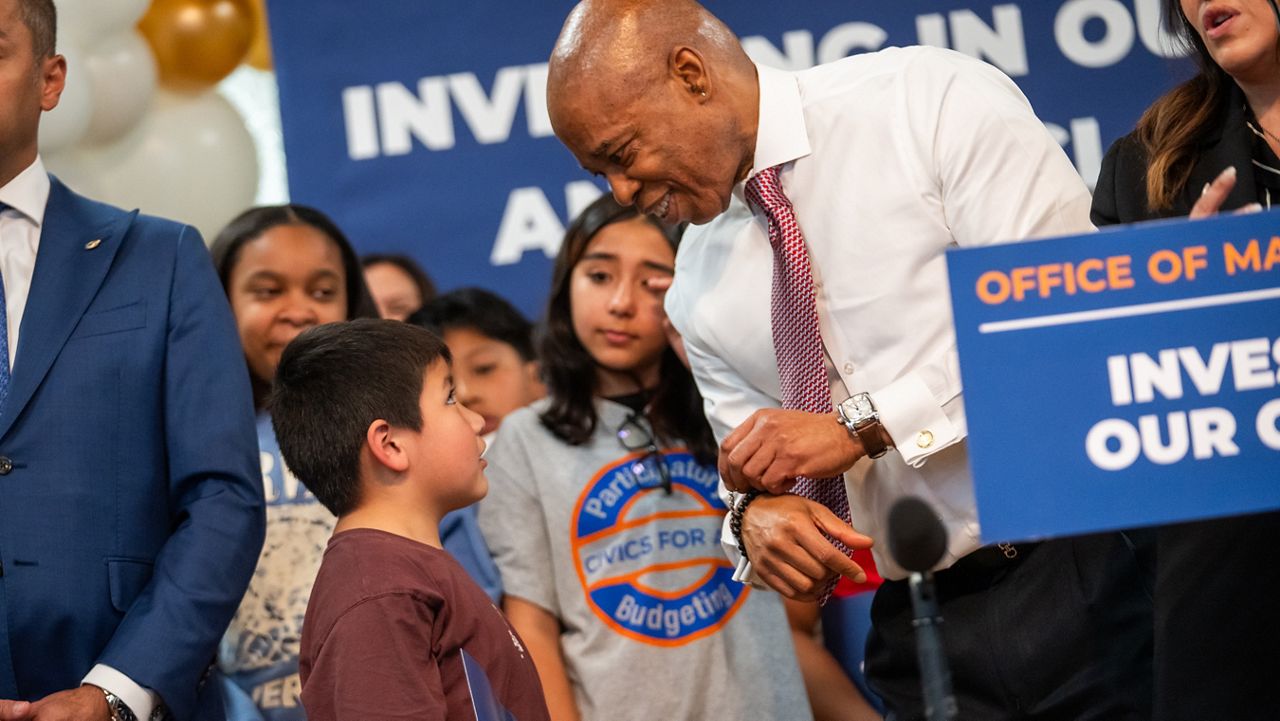Mayor Adams is asking Albany for control of city schools — but close to home, a panel that's typically a rubber-stamp has handed him some education policy setbacks.
Earlier this month, the Panel for Educational Policy, or PEP, voted down the formula used to fund city schools — it’s second time shooting down a policy or contract important to Adams, possible in part because he has not yet appointed all of his members.
The panel will meet again May 18 — and they’re likely to approve the formula then, with minimal disruption to schools. But the vote has drawn attention to questions about how schools are funded, and Adams' handling of the panel.
The formula is called “Fair Student Funding,” and it determines how much money each public school gets — based on how many children attend. Some students — those with disabilities, learning English, or struggling academically — get more weight.
But critics say the formula should also include extra funds for students in temporary housing, and in foster care.
“There are significant populations of students in this city that are not represented in the formula. I could not in good conscience vote to approve a formula that has basically been unchanged for 15 years,” Tom Sheppard, a PEP member, said.
Sheppard voted no. Normally, he might be outnumbered.
Nine of the panel's fifteen members are hand-picked by the mayor. Another five are appointed by borough presidents, and just one, Sheppard, is picked by parents.
But Adams is short a member on the panel — he has not appointed someone to replace a member he asked to resign after her homophobic writings came to light. And another one of his appointees was absent during the vote. All of the borough president appointees abstained.
"The mayor has been stymied by his own fault in not having a handle on his own majority,” Brooklyn College and CUNY Grad Center education professor David Bloomfield said.
NeQuan McLean, who served on a task force assembled in 2019 to re-think the system but whose report was never released — had urged members to vote no during the panel meeting.
“We want a commitment from this administration that they will take a look at this report. This report had weights in it for students in temporary housing. This report has weights in it for students in foster care. Our most vulnerable populations,” he said.
The panel is set to take up the vote again on Wednesday — and an education department spokesman said the DOE expects the panel to prepare for the next school year with the current formula.
Sheppard expects it to pass. But he hopes the administration will consider future changes — and in the meantime, use federal pandemic funds to add extra money for students in temporary housing and foster care.
“What I would like to see is a commitment to dealing with this in the short term, while we look at what it looks like in the long term,” he said.









